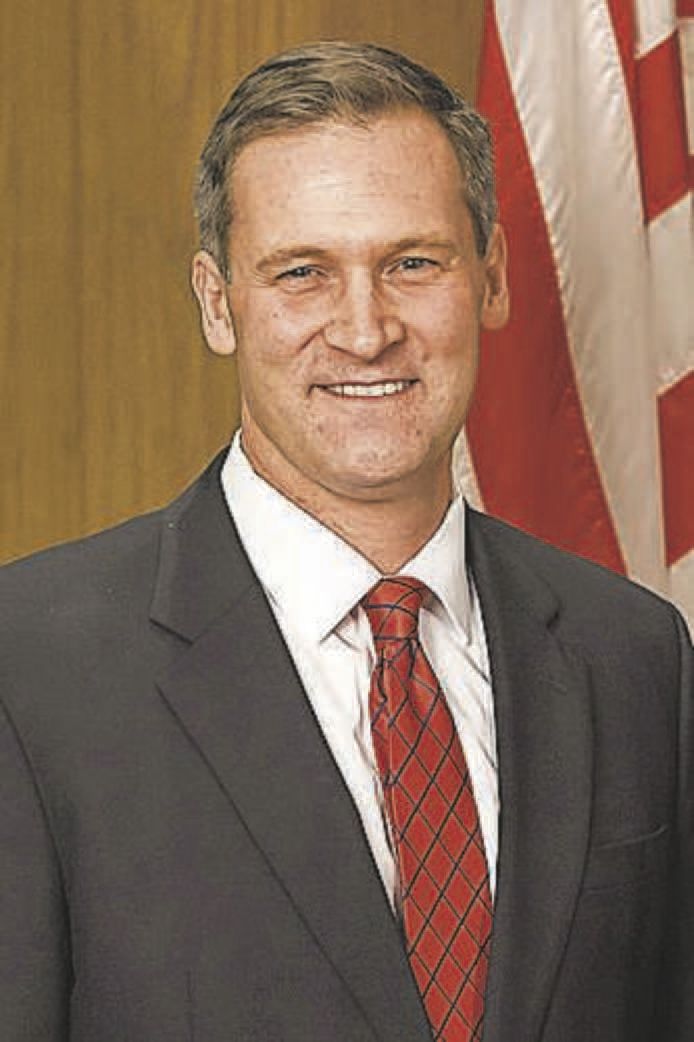By Carson Welch, Correspondent
When white nationalists and neo-Nazis held a “Unite the Right” rally in Charlottesville, Va., leaving one dead and many injured, the city’s mayor, Dr. Michael Signer, was thrown into a windstorm of countrywide outrage.
That rally, on Aug. 12, as well as a smaller KKK rally held earlier in the summer, placed the city in a debate over rightwing extremist groups in America today. Some later criticized Signer for distancing himself from the city’s handling of the protests, though he subsequently apologized, saying he had “overstepped the bounds” of his role as mayor.
Signer spoke on Wednesday at Princeton, where he graduated magna cum laude as a politics major in the class of 1995, in Richardson Hall. His remarks, titled “Charlottesville and the Future of Democracy,” were given on the condition that he only represent himself as a private citizen, not on behalf of the City of Charlottesville.
“We are a tolerant, loving, and welcoming community,” Signer said, referencing many of the progressive measures the city has undertaken since he assumed office, including an affordable housing project and an effort to settle around 100 refugees in the Charlottesville community each year. “I want to challenge the idea that my city has been defined by the images that people now see on Vice News.”
Signer went on to speak about the “two Charlottesvilles.” He was careful to note that the city is one of the most progressive in the state, and voted for Bernie Sanders over Hillary Clinton in the Democratic primary election. It also has a poverty rate higher than the state average. Renovation projects in the 1960s that razed entire neighborhoods led to poor standards of living for contemporary low income communities. “This is a part of our history,” he said, just as much as Thomas Jefferson, the city’s famed historical figure.
Two years ago, two of Signer’s colleagues in the city council began the plan to move the Robert E. Lee statue, which had been erected during the Jim Crow era. The city then created a blue ribbon commission on race and memorials, charged with “telling the full story of race through public spaces.” A circuit judge, though, quickly enjoined the city from moving the statue through a 1997 state law. But the decision had already sparked controversy among alt right groups, who then took the opportunity for a national stage.
“This is what it looks like when a progressive southern city deals at long last with the history that they have with race,” Signer said of the violent events that took place on Aug. 12. “The irony is that much of this critical work, particularly on race, is what made us a target for the many forces who don’t want us to change the narrative, to tell the full story of race.”
In the aftermath of the violence, Signer, who is Jewish, was subject to a series of anti-Semitic attacks from the right wing groups that he publicaly condemned. He spoke of one email he received depicting an image of his face photoshopped into a gas chamber, with Robert E. Lee next to him, pressing a green button. In spite of these hateful responses, Signer remains optimistic about the city’s ability to reconcile in the wake of the events of Aug. 12.
“So I hope and believe that the ultimate story of Charlottesville will be the resilience and vision of light and the repudiation of this darkness,” Signer said. “There’s nothing that’s wrong with us that what’s right with us can’t fix.”
President Donald Trump’s failure to unambiguously condemn the racism that spurred the violence in Charlottesville garnered further national attention (Signer said the president equivocated “between the far right and far left groups”). Signer had previously been asked to write about Trump for The New Republic, in 2011. Following the publication of his book, “Demagogue: The Fight to Save Democracy from Its Worst Enemies” (2009), he was asked to hazard an answer at the question posed in the title of his article: “Is Donald Trump a Demagogue?” His answer: “He might aspire to be one — but he doesn’t have the chops.” Although Signer hedged his opinion (“None of this means Trump isn’t worth taking seriously”), many other progressives would consider it an early miscalculation. In his speech, Signer later used the term “demagogue” to describe Trump.
Signer, over the past few months, has been dealing with the darkest parts of American politics. Perhaps the most important consequence of this, he said, was coming to terms with the ideologies that led to the events, and deciding on the next steps. Those ideologies are not going away overnight, especially in Charlottesville. According to Signer, organizers of the “Unite the Right” rally are filing to hold another event on its one-year anniversary.
“There’s an old saying, ‘When you dance with the devil, you don’t change the devil — the devil changes you,’” Signer said. “That is what I believe has happened to a significant part of our political establishment during this terrible chapter in our history. And the question is not only what will happen as a result of this, it is what we will do.”

